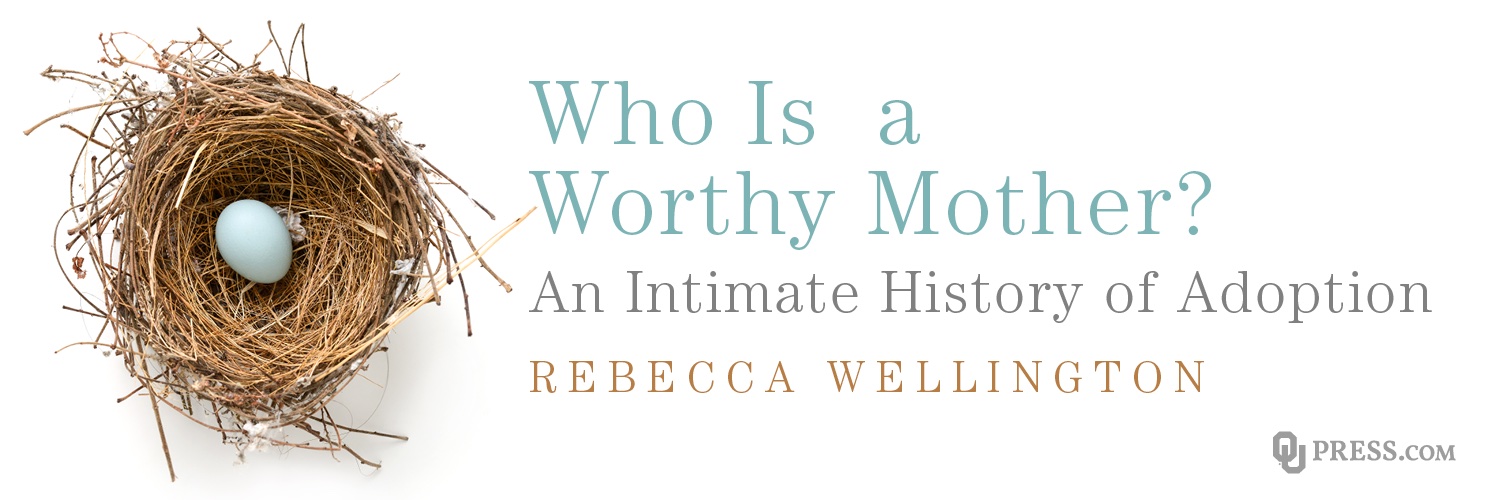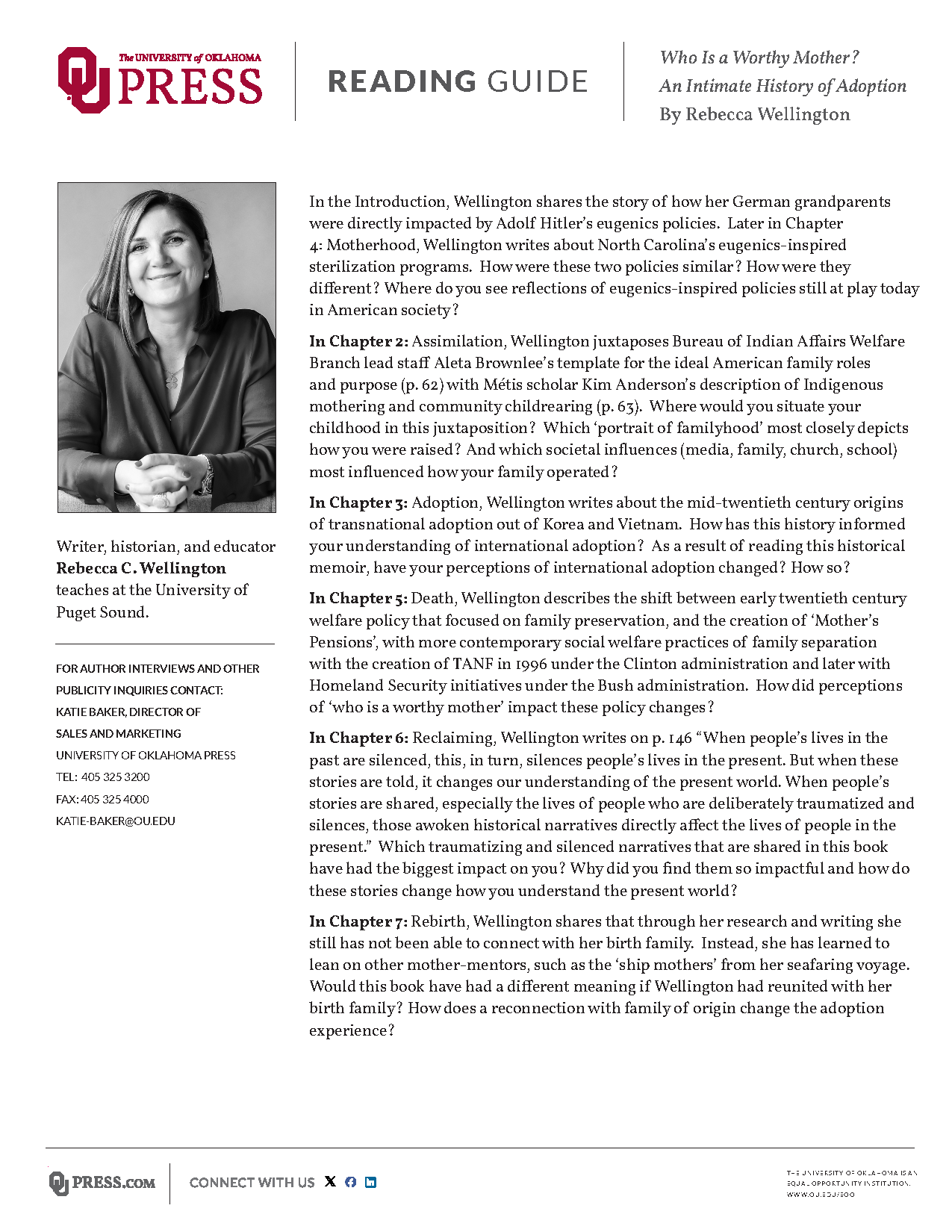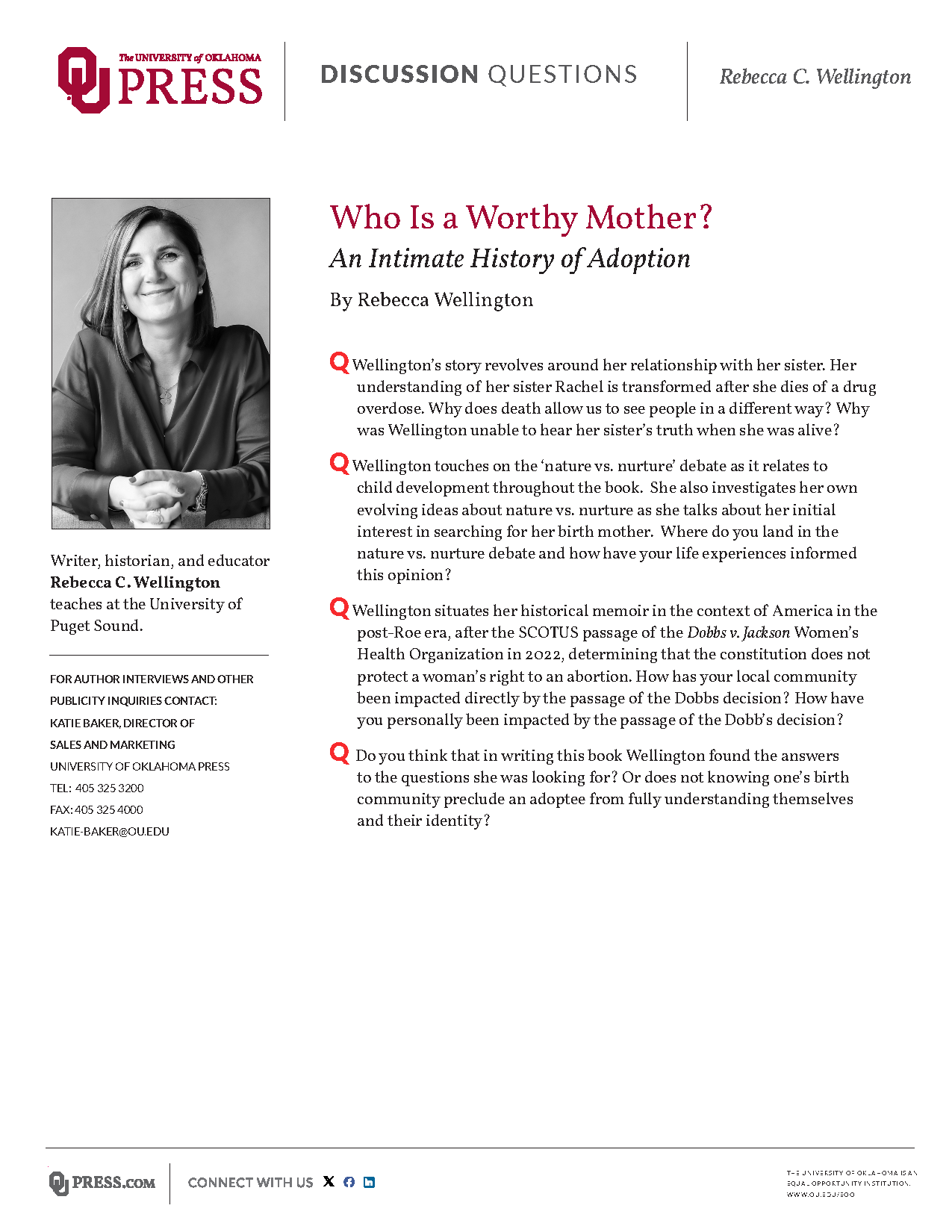Who Is a Worthy Mother? An Intimate History of Adoption
Published April 9, 2024 University of Oklahoma Press

"Who Is a Worthy Mother? An Intimate History of Adoption" is now available!
This is a history of adoption, fertility and motherhood in America over the past hundred plus years, framed through personal narrative. I investigate the evolution of adoption policy and practices in America through the 20th century, concluding with 21st century debates around women’s reproductive rights. The story follows the broader historical circumstances of adoption in America, including changing adoption policies, sterilization and compulsory relinquish programs, forced assimilation of babies of color and Indigenous babies adopted out into white families, and other forces that impacted women, mothers, and babies. Each evolving chapter is bookended with my personal and familial experiences.
In the 1970’s, the decade in which I was born and adopted out, also the peak of adoption transactions, the national narrative on adoption shifted to a more public act of white philanthropy with the growth of a multi-million dollar international adoption industry. This transition to public acceptance of adoption, particularly international adoption, fostered an era of assimilation rooted in making good American children and families. Through this historical and personal journey, I come to understand that women have existed and do exist in an impossible paradox of societal shame of both fertility and infertility, and adoption sits in the crossroads. From a macro view, adoption is the lens through which we can see in stark relief how our nation differentially values humans. The evolution of adoption policies speaks to cultural assumptions about women and their expected roles in motherhood. Adoption is the vehicle through which mothers are both made and broken as babies are transferred from those considered unworthy to those considered worthy of mothering.
The metanarrative on adoption in the United States has largely been told by outsiders to the experience, historians and social scientists, focused on critiquing and objectively dissecting the experiences and policies that shape the industry. The story is also frequently told from the perspective of adopting parents and other agents involved in the adoption transaction, social workers and journalists, who desperately want to do it right but ironically don’t factor in the voices and lived experiences of adopted persons themselves or the personal narratives of women who have relinquished their babies. I bring these silenced voices to the narrative and, in doing so, critically unpack the judgements adoption exposes in our society about women’s value and the paradoxes of fertility. As a mother, historian and adoptee, I uncover the confluences of adoption practices and impacts from a unique and critical perspective. My goal is to make this history approachable and impactful at a moment when our nation is once again debating women’s agency over their own fertility. The looming impacts of this debate on adoption practices shape how our nation values both women and mothers. Recently Justices’ Coney Barrett and Alito have fashioned adoption as a cudgel to be used against women’s reproductive rights. Their logic affirms the shame of fertility by imposing the burden of forced pregnancy on women, thus stripping women of their autonomy of fertility. Adoption sits at the fulcrum point between the paradoxical shame of fertility and infertility. If we want to critically unpack motherhood and fertility in America, we must include our complicated history of adoption.
Book Club Resources
Book Clubs and Organizations
I would love to talk with your book club or organization. Contact Me to arrange a meeting!

